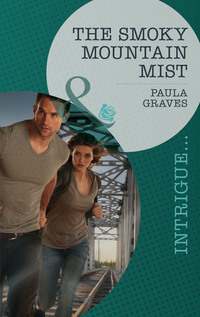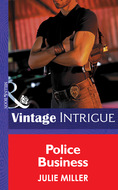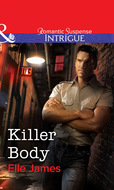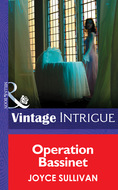Kitap dosya olarak indirilemez ancak uygulamamız üzerinden veya online olarak web sitemizden okunabilir.
Kitabı oku: «The Smoky Mountain Mist»

Rachel caught his arm.
Seth turned back to her, his gaze first settling where her fingers circled his rain-slick forearm, then rising to meet hers. His eyes were forest-green in the low light, as deep and mysterious as the rainy woods outside the car.
“You saved my life last night, and you’ve asked for nothing in return. You didn’t even try to use it against me just now, when you could have. Any con man worth his salt would have.”
He grimaced. “I’m no saint.”
“I’m not saying you are. I’m just saying I believe you.”
The interior of the car seemed to contract, the space between their bodies suddenly infinitesimal. She could feel heat radiating from his body, answered by her own. Despite his battered condition, despite the million and one reasons she shouldn’t feel this aching magnetism toward him, she couldn’t pretend she didn’t find him attractive.
About the Author
Alabama native PAULA GRAVES wrote her first book, a mystery starring herself and her neighborhood friends, at the age of six. A voracious reader, Paula loves books that pair tantalizing mystery with compelling romance. When she’s not reading or writing, she works as a creative director for a Birmingham advertising agency and spends time with her family and friends. She is a member of Southern Magic Romance Writers, Heart of Dixie Romance Writers and Romance Writers of America.
Paula invites readers to visit her website, www.paulagraves.com.
The Smoky Mountain Mist
Paula Graves

MILLS & BOON
Before you start reading, why not sign up?
Thank you for downloading this Mills & Boon book. If you want to hear about exclusive discounts, special offers and competitions, sign up to our email newsletter today!
Or simply visit
Mills & Boon emails are completely free to receive and you can unsubscribe at any time via the link in any email we send you.
For the old Lakewood gang,
those still with us and those gone,
who made trips to the Smokies so much fun.
Chapter One
Rachel Davenport knew she was being watched, and she hated it, though the gazes directed her way that cool Oc-tober morning appeared kind and full of sympathy. Only a few of her fellow mourners knew the full truth about why she’d disappeared for almost a year after her moth-er’s sudden death fifteen years ago, but that didn’t change the self-consciousness descending over her like a pall.
She locked her spine and lifted her head, refusing to give anyone reason to doubt her strength. She’d survived so far and didn’t intend to fall apart now. She wasn’t going to give anyone a show.
“It’s a lovely gathering, isn’t it?” Diane, her father’s wife of the past eight years, dabbed her eyes with a delicate lace-rimmed handkerchief. “So many people.”
“Yes,” Rachel agreed, feeling a stab of shame. She wasn’t the only person who’d lost someone she loved. Diane might be flighty and benignly self-absorbed, but she’d made George Davenport’s last days happy ones. He’d loved Diane dearly and indulged her happily, and she’d been nothing but a caring, cheerful and devoted wife in his dying days. Even if Rachel had resented the other woman in her father’s life—and she hadn’t—she would have loved Diane for giving her father joy for the past eight years.
“I sometimes forget that he touched so many lives. With me he was just Georgie. Not the businessman, you know? Just a sweet, sweet man who liked to garden and sing to me at night.” Fresh tears trickled from Diane’s eyes. She blotted them away with the handkerchief, saved from a streaky face by good waterproof mascara. She lifted her red-rimmed eyes to Rachel. “I’m going to miss the hell out of that man.”
Rachel gave her a swift, fierce hug. “So am I.”
The preacher took his place at the side of the casket and spoke the scripture verses her father had chosen, hopeful words from the book of Ephesians, her father’s favorite. Rachel wanted to find comfort in them, but a shroud of loss seemed to smother her whole.
She couldn’t remember ever feeling quite so alone. Her father had been her rock for as long as she could remember, and now he was gone. There was her uncle Rafe, of course, but he lived two hours away and spent much of his time on the road looking for new acts for his music hall.
And as much as she liked and appreciated Diane, they had too little in common to be true friends, much less family. Nor did she really consider her stepbrother, Diane’s son, Paul, anything more than a casual friend, though they’d become closer since she’d quit her job with the Maryville Public Library to take over as office manager for her father’s trucking company.
She sometimes wondered why her father hadn’t ceded control of the business to Paul instead of her. He’d worked at Davenport Trucking for over a decade. Her father had met Diane through her son, not the other way around. He had been assistant operations manager for several years now and knew the business about as well as anyone else.
Far better than she did, even though she’d learned a lot in the past year.
She watched her stepbrother edge closer to the casket. As his lips began moving, as if he was speaking to the man encased in shiny oak and satin, a dark-clad figure a few yards behind him snagged Rachel’s attention. He was lean and composed, dressed in a suit that fit him well enough but seemed completely at odds with his slightly spiky dark hair and feral looks. A pair of dark sunglasses obscured his eyes but not the belligerently square jaw and high cheekbones.
It was Seth Hammond, one of the mechanics from the trucking company. Other Davenport Trucking employees had attended the funeral, of course, so she wasn’t sure why she was surprised to see Seth here. Except he’d never been close to her father, or to anyone else at the company for that matter. She’d always figured him for a loner.
As her gaze started to slide away from him, he lifted the glasses up on his head, and his eyes snapped up to meet hers.
A zapping sensation jolted through her chest, stopping her cold. His gaze locked with hers, daring her to look away. The air in her lungs froze, then burned until she forced it out in a deep, shaky sigh.
He looked away, and she felt as if someone had cut all the strings holding her upright. Her knees wobbled, and she gripped Diane’s arm.
“What is it?” Diane asked softly.
Rachel closed her eyes for a moment to regain her sense of equilibrium, then looked up at the man again.
But he was gone.
“I DON’T KNOW. She looks okay, I guess.” From his parking spot near the edge of the cemetery, Seth Hammond kept an eye on Rachel Davenport. The cemetery workers had lowered the oak casket into the gaping grave nearly twenty minutes ago, and most of the gathered mourners had dispersed, leaving the immediate family to say their final private goodbyes to George Davenport.
“It’s not a coincidence that everyone around her is gone.” The deep voice rumbling through the cell phone receiver like an annoying fly in Seth’s ear belonged to Adam Brand, FBI special agent in charge. Seth had no idea why the D.C.-based federal agent was so interested in a trucking company heiress from the Smoky Moun-tains of Tennessee, but Brand paid well, and Seth wasn’t in a position to say no to an honest job.
The only alternative was a dishonest job, and while he’d once been damned good at dishonesty, he’d found little satisfaction in those endeavors. It was a curse, he supposed, when the thing you could do the best was something that sucked the soul right out of you.
“I agree. It’s not a coincidence.” Seth’s viewpoint from the car several yards away wasn’t ideal, but the last thing a man with his reputation needed was to be spotted watching a woman through binoculars. So he had to make do with body language rather than facial expressions to get a sense of what Rachel Davenport was thinking and feeling. Grief, obviously. It covered her like morning fog in the Smokies, deceptively ephemeral. She stood straight, her chin high, her movements composed and measured. But he had a strong feeling that the slightest nudge would send her crumbling into ruins.
Everyone was gone now. Her mother by her own hand fifteen years ago, her father by cancer three days ago. No brothers or sisters, save for her stepbrother, Paul, and it wasn’t like they’d grown up together as real siblings the way Seth and his sister had.
“Have you seen Delilah recently?” Brand asked with his usual uncanny way of knowing the paths Seth’s mind was traveling at any given moment.
“Ran into her at Ledbetter’s Café over the weekend,” Seth answered. He left it at that. He wasn’t going to gossip about his sister.
Brand had never said, and Seth had never asked, why he didn’t just call up Delilah himself if he wanted to know how she was doing. Seth assumed things had gone sideways between them at some point. Probably why Dee had left the FBI years ago and eventually gone to work for Cooper Security. At the time, Seth had felt relieved by his sister’s choice, well aware of the risk that, sooner or later, his sister’s job and his own less savory choice of occupations might collide.
Of course, now that he’d found his way onto the straight and narrow, she was having trouble believing in the new, improved Seth Hammond.
“I got some good snaps of the funeral-goers, I think. I’ll check them out when I get a chance.” A hard thud on the passenger window made him jerk. He looked up to find Delilah’s sharp brown eyes burning holes into the glass window separating them. “Gotta go,” he said to Brand and hung up, shoving the cell phone into his pocket. He slanted a quick look at the backseat to make sure he’d concealed the surveillance glasses he’d been using to take images of the funeral. They were safely hidden in his gym bag on the floorboard.
With a silent sigh, he lowered the passenger window. “Hey, Dee.”
“What are you doin’ here?” His sister had been back in Tennessee for two weeks and already she’d shed her citified accent for the hard Appalachian twang of her childhood. “Up to somethin’?”
Her suspicious tone poked at his defensive side. “I was attending my boss’s funeral.”
“Funeral’s over, and yet here you are.” Delilah looked over the top of the car toward the Davenport family. “You thinking of conning a poor, grieving heiress out of her daddy’s money?”
“Funny.”
“I’m serious as a heart attack.” Her voice rose slightly, making him wince.
He glanced at the Davenport family, wondering if they had heard. “You’re making a scene, Dee.”
“Hammonds are good at making scenes, Seth. You know that.” Delilah reached into the open window, unlatched the car door and pulled it open, sliding into the passenger seat. “Better?”
“You ran into Mama, did you?” he asked drily, not missing the bleak expression in her dark eyes.
“The Bitterwood P.D. called me to come pick her up or they were throwing her in the drunk tank.” Delilah grimaced. “Who the hell told them I was back in town, anyway?”
“Sugar, there ain’t no lyin’ low in Bitterwood. Too damned small and too damned nosy.” Unlike his sister, he’d never really left the hills, though he’d kept clear of Bitterwood for a few years to let the dust settle. If not for Cleve Calhoun’s stroke five years ago, he might never have come back. But Cleve had needed him, and Seth had found a bittersweet sort of satisfaction in trying to live clean in the place where he’d first learned the taste of iniquity.
He sneaked a glance at George Davenport’s grave. The family had dispersed, Paul Bailey and his mother, Diane, walking arm in arm toward Paul’s car, while Ra-chel headed slowly across the cemetery toward another grave nearby. Marjorie Kenner’s, if he remembered correctly. Mark Bramlett’s last victim.
“I know vulnerable marks are your catnip,” Delilah drawled, “but can’t you let the girl have a few days of unmolested grief before you bilk her out of her millions?”
“You have such a high opinion of me,” he murmured, dragging his gaze away from Rachel’s stiffened spine.
“Well-earned, darlin’,” she answered, just as quietly.
“I don’t suppose it would do any good to tell you I don’t do that sort of thing anymore?”
“Yeah, and Mama swore she’d drunk her last, too, as I was puttin’ her ginned-up backside to bed.” Bitter resignation edged her voice.
Oh, Dee, he thought. People keep lettin’ you down, don’t they?
“Tell me you’re not up to something.”
“I’m done with that life, Dee. I’ve been done with it a few years now.”
Her wary but hopeful look made his heart hurt. “I left the truck over on the other side of the cemetery. Why don’t you drive me over there?”
He spared one more glance at Rachel Davenport, wondering how much longer she’d be able to remain upright. Someone had been working overtime the past few weeks, making sure she’d come tumbling down sooner or later.
The question was, why?
“I DIDN’T GET to talk to you at the service.”
Rachel’s nervous system jolted at the sound of a familiar voice a few feet away. She turned from Marjo-rie’s grave to look into a pair of concerned brown eyes.
Davis Rogers hadn’t changed a bit since their breakup five years ago. With his clean-cut good looks and effortless poise, he’d always come across as a confident, successful lawyer, even when he was still in law school at the University of Virginia.
She’d been sucked in by that easy self-composure, such a contrast to her own lack of confidence. It had been so easy to bask in his reflected successes.
For a while at least.
Then she’d found her own feet and realized his all-encompassing influence over her life had become less a shelter and more a shackle.
Easy lesson to forget on a day like today, she thought, battered by the familiar urge to enclose herself in his arms and let him make the rest of the world go away. She straightened her spine and resisted the temptation. “I didn’t realize you’d even heard about my father.”
“It made the papers in Raleigh. I wanted to pay my respects and see how you were holding up.” He brushed a piece of hair away from her face. “How are you holding up?”
“I’m fine.” His touch left her feeling little more than mild comfort. “I’m sad,” she added at his skeptical look. “And I’ll be sad for a while. But I’m okay.”
It wasn’t a lie. She was going to be okay. Despite her crushing sense of grief, she felt confident she wasn’t in danger of losing herself.
“Maybe what you need is to get out and get your mind off things.” Davis cupped her elbow with his large hand. “The clerk at the bed-and-breakfast where I’m staying suggested a great bar near the university in Knoxville where we can listen to college bands and relive our misspent youth. What do you say, Rach? It’ll be like Char-lottesville all over again.”
She grimaced. “I never really liked those bars, you know. I just went because you liked them.”
His expression of surprise was almost comical. “You didn’t?”
“I’m a Tennessee girl. I liked country music and bluegrass,” she said with a smile.
He looked mildly horrified, but he managed to smile. “I’m sure we can find a honky-tonk in Knoxville.”
“There’s a little place here in Bitterwood we could go. They have a house bluegrass band and really good loaded potato skins.” After the past few months of watching her father dying one painful inch at a time, maybe what she needed was to indulge herself. Get her mind off her losses, if only for a little while.
And why not go with Davis? She wasn’t still in love with him, but she’d always liked and trusted him. It was safer than going alone. The man who’d killed four of her friends might be dead and gone, but the world was still full of danger. A woman alone had to be careful.
And she was alone, she knew, bleakness seeping into her momentary optimism.
So very alone.
FOR THE FIRST time in years, Seth Hammond had a place to himself. It wasn’t much to talk about, a ramshackle bungalow halfway up Smoky Ridge, but for the next few weeks, he wouldn’t have to share it with anyone else. The house’s owner, Cleve Calhoun, was in Knoxville for therapy to help him regain some of the faculties he’d lost to a stroke five years ago.
By seven o’clock, Seth had decided that alone time wasn’t all it was cracked up to be. Even if the satellite reception wasn’t terrible, there wasn’t much on TV worth watching these days. The Vols game wasn’t until Satur-day, and with the Braves out of play-off contention, there wasn’t much point in watching baseball, either.
He’d already gone through the photos from the funeral he’d taken with his high-tech camera glasses, but as far as he could tell, there was nobody stalking Ra-chel Davenport at the funeral except himself. He supposed he could go through the photos one more time, but he’d seen enough of Rachel’s grief for one day. He’d uploaded the images to the FTP site Adam Brand had given him. Maybe the FBI agent would have better luck than he had. Brand, after all, at least knew what it was he was looking for.
He certainly hadn’t bothered to let Seth in on the secret.
You have turned into a dull old coot, Seth told himself, eyeing the frozen dinner he’d just pulled from Cleve’s freezer with a look of dismay. There was a time when you could’ve walked into any bar in Maryville and gone home with a beautiful woman. What the hell happened to you?
The straight and narrow, he thought. He’d given up more than just the con game, it appeared.
“To hell with that.” He shoved the frozen dinner back into the frost-lined freezer compartment. He was thirty-two years old, not sixty. Playing nursemaid to a crippled old man had, ironically, kept him lean and strong, since he’d had to haul Cleve Calhoun around like a baby. And while he wasn’t going to win any beauty pageants, he’d never had trouble catching a woman’s eye.
An image of Rachel Davenport’s cool blue eyes meeting his that morning at the funeral punched him in the gut. He couldn’t remember if she’d ever looked him in the eye before that moment.
Probably not. At the trucking company, he was more a part of the scenery than a person. A chair or a desk or one of the trucks he repaired, maybe. He’d become good at blending in. It had been his best asset as a con artist, enabling him to learn a mark’s vulnerabilities without drawing attention to himself. Cleve had nicknamed him Chameleon because of his skill at becoming part of the background.
That same skill had served him well as a paid FBI informant, though there had been a few times, most recently in a dangerous backwoods enclave of meth dealers, when he’d come close to breaking cover.
But looking into Rachel Davenport’s eyes that morning, he’d felt the full weight of being invisible. For a second, she’d seen him. Her blue eyes had widened and her soft pink lips had parted in surprise, as if she’d felt the same electric zing that had shot through his body when their gazes connected.
Maybe that was the longing driving him now, propelling him out of the shack and into Cleve’s old red Charger in search of another connection. It was a night to stand out from the crowd, not blend in, and he knew just the honky-tonk to do it in.
The road into Bitterwood proper from the mountains was a winding series of switchbacks and straightaways called Old Purgatory Road. Back in the day, when they were just kids, Delilah, a couple of years older and eons wiser, had told Seth that it was named so because hell was located in a deep, dark cavern in the heart of Smoky Ridge, their mountain home, and the only way to get in or out was Purgatory Road.
Of course, later he’d learned that Purgatory was actually a town about ten miles to the northeast, and the road had once been the only road between there and Bitterwood, but Delilah’s story had stuck with him anyway. Even now, there were times when he thought she’d been right all along. Hell did reside in the black heart of Smoky Ridge, and it was all too easy for a person to find himself on a fast track there.
Purgatory Road flattened out as it crossed Vesper Road and wound gently through the valley, where Bit-terwood’s small, four-block downtown lay. There was little there of note—the two-story brick building that housed the town administrative offices, including the Bitterwood Police Department, a tiny postage stamp of a post office and a few old shops and boutiques that stubbornly resisted the destructive sands of time.
Bitterwood closed shop at five in the evening. Ev-erything was dark and shuttered as Seth drove through. All the nighttime action happened in the outskirts. Bit-terwood had years ago voted to allow liquor sales by the drink as well as package sales, hoping to keep up with the nearby tourist traps. While the tourist boom had bypassed the little mountain town despite the effort, the gin-guzzling horse was out of the barn, and the occasional attempts by civic-minded folks to rescind the liquor ordinances never garnered enough votes to pass.
Seth had never been much of a drinker himself. Cleve had taught him that lesson. A man who lived by his instincts couldn’t afford to let anything impair them. Plus, he’d grown up dodging the blows of his mean, drug-addled father. And all liquor had done for his mother was dull the pain of her husband’s abuse and leave her a shell of a woman long after the old bastard had blown himself up in a meth lab accident.
He’d never have gone to Smoky Joe’s Saloon for the drinks anyway. They watered down the stuff too much, as much to limit the drunken brawls as to make an extra buck. But they had a great house band that played old-style Tennessee bluegrass, and some of the prettiest girls in the county went there for the music.
He saw the neon lights of Smoky Joe’s ahead across Purgatory Bridge, the steel-and-concrete truss bridge spanning Bitterwood Creek, which meandered through a narrow gorge thirty feet below. The lights distracted him for only a second, but that was almost all it took. He slammed on the brakes as the darkened form of a car loomed in his headlights, dead ahead.
The Charger’s brakes squealed but held, and the muscle car shuddered to a stop with inches to spare.
“Son of a bitch!” he growled as he found his breath again. Who the hell had parked a car in the middle of the bridge without even turning on emergency signals?
With a start, he recognized the vehicle, a silver Honda Accord. He’d seen Rachel Davenport drive that car in and out of the employee parking lot at Davenport Trucking every day for the past year.
His chest tightening with alarm, he put on his own emergency flashers and got out of the car, approaching the Honda with caution.
Out of the corner of his eye, he detected movement in the darkness. He whipped his gaze in that direction.
She stood atop the narrow steel railing, her small hands curled in the decorative lacework of the old truss bridge. She swayed a little, like a tree limb buffeted by the light breeze blowing through the girders. The air ruffled her skirt and fluttered her long hair.
“Ms. Davenport?” Seth’s heart squeezed as one of her feet slid along the thin metal support and she sagged toward the thirty-foot drop below.
“Ms. Davenport is dead,” she said in a faint, mournful tone. “Killed herself, you know.”
Seth edged toward her, careful not to move too quickly for fear of spooking her. “Rachel, that girder’s not real steady. Don’t you want to come down here to the nice, solid ground?”
She laughed softly. “Solid. Solid.” She said the word with comical gusto. “‘She’s solid.’ What does that mean? It makes you sound stiff and heavy, doesn’t it? Solid.”
Okay, not suicidal, he decided as he took a couple more steps toward her. Drunk?
“Do you think I’m cursed?” There was none of her earlier amusement in that question.
“I don’t think so, no.” He was almost close enough to touch her. But he had to be careful. If he grabbed at her and missed, she could go over the side in a heartbeat.
“I think I am,” she said. Her voice had taken on a definite slurring cadence. But he decided she didn’t sound drunk so much as drugged. Had someone given her a sedative after the funeral? Maybe she’d had a bad reaction to it.
“I don’t think you’re cursed,” Seth disagreed, easing his hand toward her in the dark. “I think you’re tired and sad. And, you know, that’s okay. It means you’re human.”
Her eyes glittered in the reflected light of the Char-ger’s flashers. “I wish I were a bird,” she said plaintively. “Then I could fly away over the mountains and never have to land again.” She took a sudden turn outward, teetering atop the rail as if preparing to take flight. “She said I should fly.”
Then, in heart-stopping slow motion, she began to fall forward, off the bridge.








